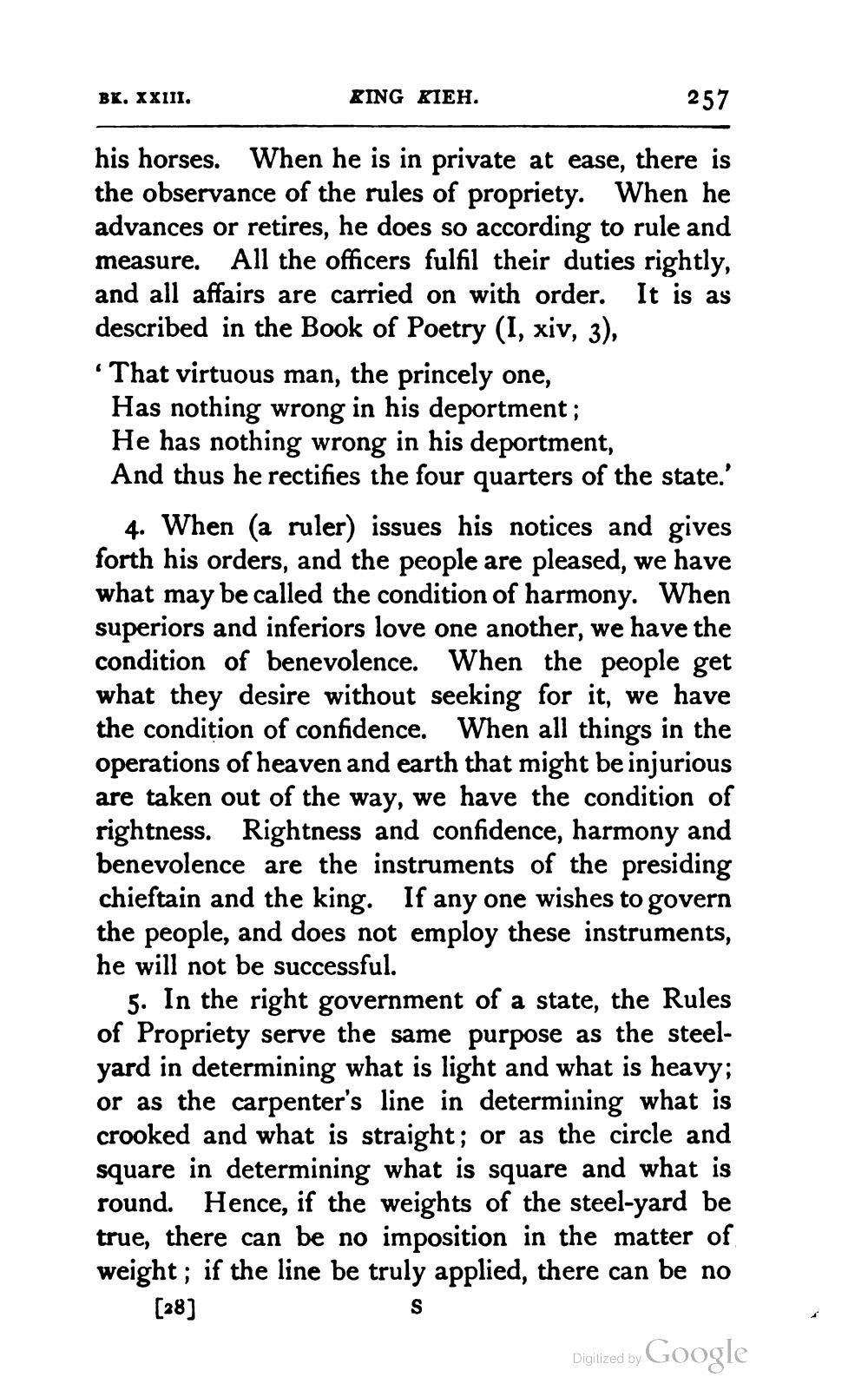________________
BK. XXIII.
KING KIEH.
257
his horses. When he is in private at ease, there is the observance of the rules of propriety. When he advances or retires, he does so according to rule and measure. All the officers fulfil their duties rightly, and all affairs are carried on with order. It is as described in the Book of Poetry (1, xiv, 3), •That virtuous man, the princely one,
Has nothing wrong in his deportment; He has nothing wrong in his deportment, And thus he rectifies the four quarters of the state.'
4. When (a ruler) issues his notices and gives forth his orders, and the people are pleased, we have what may be called the condition of harmony. When superiors and inferiors love one another, we have the condition of benevolence. When the people get what they desire without seeking for it, we have the condition of confidence. When all things in the operations of heaven and earth that might be injurious are taken out of the way, we have the condition of rightness. Rightness and confidence, harmony and benevolence are the instruments of the presiding chieftain and the king. If any one wishes to govern the people, and does not employ these instruments, he will not be successful.
5. In the right government of a state, the Rules of Propriety serve the same purpose as the steelyard in determining what is light and what is heavy; or as the carpenter's line in determining what is crooked and what is straight; or as the circle and square in determining what is square and what is round. Hence, if the weights of the steel-yard be true, there can be no imposition in the matter of weight; if the line be truly applied, there can be no
[28]
Digitized by Google




